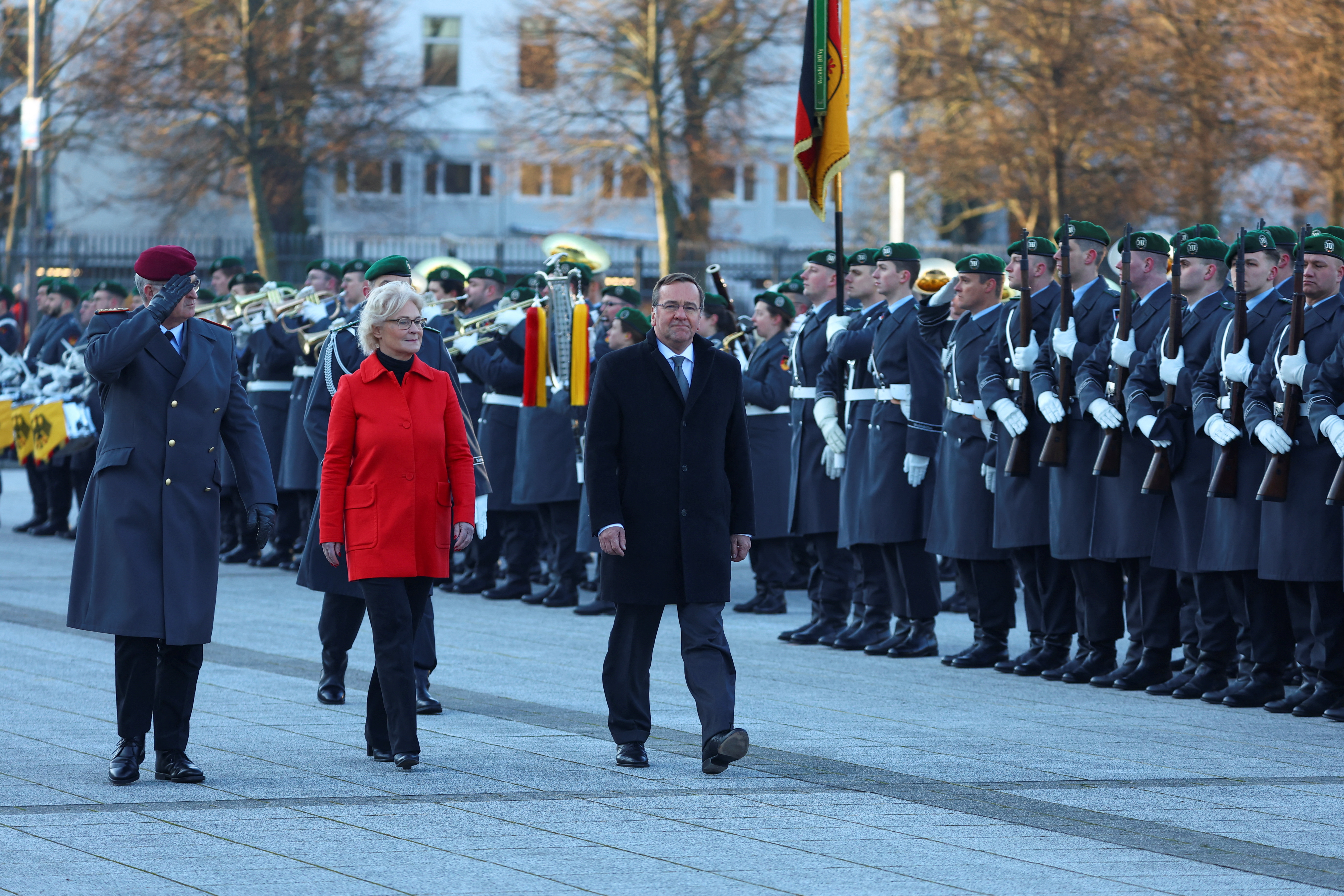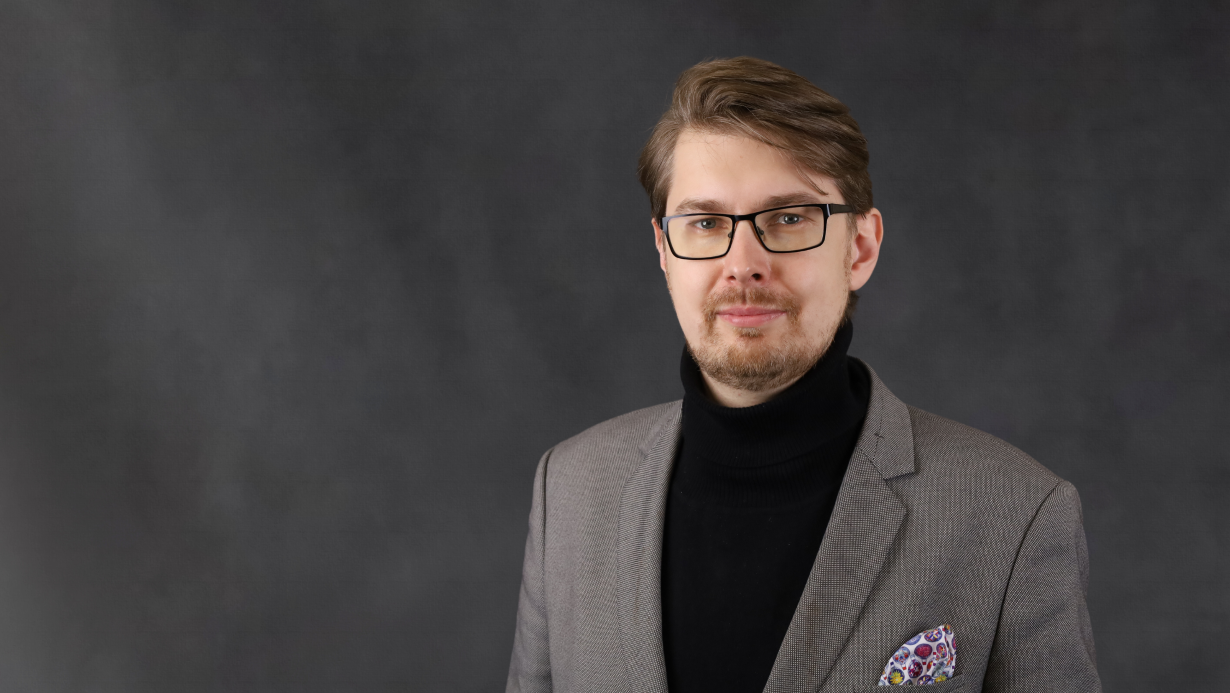Germany Switches Defence Minister
The resignation of Christine Lambrecht as defence minister was expected by most of the public and foreign experts. The new minister, Boris Pistorius, has more experience than his predecessor in the security sphere, although not directly in military issues. The main internal challenge the new minister will have to face is how to accelerate the rearmament of the Bundeswehr. Although Pistorius advocates support for Ukraine to help it regain its occupied territories, Chancellor Scholz's cautious stance is not expected to change.
 FABRIZIO BENSCH/Reuters/Forum
FABRIZIO BENSCH/Reuters/Forum
Why did Lambrecht resign?
The most serious criticism levelled by both the opposition and some Green and FDP politicians concerned the slow pace of the Bundeswehr’s rearmament plan, despite the Bundestag's approval of a special fund of €100 billion in June. Minister Lambrecht, contrary to her announcements, failed to initiate deep reforms of the military bureaucracy, hindering the efficient acquisition of new equipment. In October 2022, the Federal Court of Auditors pointed out mistakes in the armed forces’ modernisation plans, including not taking inflation into account, resulting in a reduced list of projects. The shortage of basic equipment for soldiers and ammunition has also not been resolved. However, it should be noted that some of the Bundeswehr’s problems are due to mistakes by former Chancellor Angela Merkel’s government and its policy of budget cuts. The key decision to order F-35 aircraft capable of carrying U.S. nuclear armaments as part of the nuclear-sharing programme was not related to Lambrecht’s actions, but resulted from the provisions of the December 2021 coalition agreement. She was successful, though, in negotiating a contract for the delivery of CH-47 Chinook transport helicopters. The minister’s image was tarnished by communication lapses that undermined the standing of the ministry, including a New Year’s speech alluding to the war in Ukraine but delivered during a fireworks display in Berlin. According to polls, about 60-65% of Germans surveyed favoured her resignation.
Who is the new defence minister?
Lambrecht was succeeded by Pistorius, a dark horse candidate who did not get much media attention. He is a former interior minister of the state of Lower Saxony and a member of the Bundesrat’s defence committee. In the ministerial position, he accumulated experience in counterterrorism and cybersecurity issues, unlike Lambrecht, who had no contact with these matters prior to taking office. The appointment indicates that Chancellor Scholz was keen to appoint a person with some security expertise already in place, yet without a broader political background. In his previous post, Pistorius advocated a determined effort to combat signs of Islamic extremism, including through increased surveillance and banning associations suspected of recruiting terrorists. Pistorius also differs from Lambrecht in his cooperation with media, with which he clearly communicates his decisions. The new minister’s weakness is his lack of experience at the federal level and in international politics. In previous years, Pistorius, like other SPD politicians from Lower Saxony such as Gerhard Schröder and Sigmar Gabriel, advocated cooperation with Russia and in 2018 demanded a review of sanctions as allegedly harming the German economy. However, he strongly condemned the February 2022 Russian invasion of Ukraine. Unlike Chancellor Scholz, who has long limited himself to statements that Ukraine cannot lose the war, Pistorius insists that Ukraine must retake the oblasts occupied by Russia after February 2022, though he has not mentioned Crimea, occupied since 2014.
What challenges does the new defence minister face?
Despite decisions made after February 2022 to change its defence policy, the Bundeswehr still does not meet NATO’s ammunition supply requirements. Instead of a stockpile for 30 days, the resources it has allow only a few days of intensive combat. Improving the situation will require both procurement and negotiations with the arms industry to increase production. Another challenge will be to at least partially fill personnel shortages: some 20% of Bundeswehr vacancies remain unfilled. This could make it difficult for Germany to create a full division for NATO’s Rapid Reaction Force by 2024, as it pledged at the Alliance’s Madrid summit. Other problems are shortages of equipment and its poor technical condition, as in the case of the defect-prone Puma combat vehicles, which were temporarily withdrawn from service at the end of 2022. In this situation, Germany, which since the beginning of 2023 has taken command of the NATO “spearhead”, has had to turn to older-generation Marder vehicles. It also needs to simplify procurement procedures for the military, in particular reform of the Federal Office for Equipment, Information Technology and Technical Support of the Bundeswehr. In the longer term, the challenge for the defence minister, as well as Germany’s political elite, will be to reflect on a method of financing the armed forces after the special fund is exhausted, without which defence spending will be less than 2% of GDP. Challenges in the international sphere centre on organising further supplies of weapons and equipment to Ukraine, despite the Bundeswehr’s limited resources. Also at issue for the prospects of the German armed forces will be the continuation of joint defence projects with France, such as multirole aircraft (FCAS) and a next-generation tank (MGCS).
What do the changes in the Defence Ministry mean for Poland and Ukraine?
The change in the position of defence minister will not affect Germany’s allied commitments to Poland and other countries on NATO’s Eastern Flank. Germany’s mission as a framework country for NATO Battalion Battle Groups in Lithuania and Slovakia and the Patriot batteries strengthening Poland’s air defence will continue. Seeking to minimise the image damage associated with the failure of its policy toward Russia and Chancellor Scholz’s attitude toward Ukraine, Minister Pistorius will attempt to reassure allies of Germany’s determination to defend NATO’s Eastern Flank. On the issue of arms supplies to Ukraine, the most important decisions will be made by Chancellor Scholz, who will likely continue to balance the pacifist-oriented faction within the SPD and part of the electorate with pressure from the Greens, FDP, and Germany’s allies. The government’s policy on arms supplies will continue to be reactive, with weapons being supplied, but on a limited basis. The biggest changes are likely to be in the communications sphere. Minister Pistorius will want to build his image as a decisive politician, which will involve tightening his tone towards Russia and expressing solidarity with Ukraine, as well as communicating defence decisions more clearly to the public.


